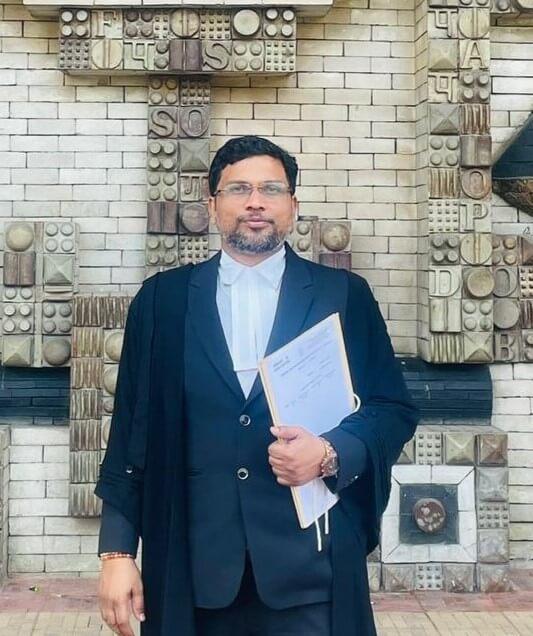Telangana Court Judgment Rash and Negligent driving – Accused is presumed innocent until proven CRPC – S.374, 397 & 401 – IPC – S.304A & 337 – M.V. Act – S.187 – Criminal revision against conviction – burden of proof – high speed – held, A thorough review of the evidence presented reveals that none of the essential elements for the offenses under S.304A & 337 of the IPC, nor S.187 of the M.V. Act, are established against the petitioner/accused. Although a complaint was lodged and cognizance was taken with a charge sheet filed, there is no substantive evidence to proceed against the petitioner. The court further noted that merely driving at a high speed does not automatically imply negligence or rashness. None of the prosecution’s witnesses could clearly define what they meant by “high speed” or provide any specific details. In a criminal trial, the burden of proof always lies with the prosecution, and the accused is presumed innocent until proven otherwise. As a result, the petitioner is entitled to an acquittal for the charges brought against him. The criminal revision petition is allowed, and the conviction and sentence are set aside. Accordingly, the petitioner stands acquitted of all charges. #rashdriving #accident #presumption #innocentuntilproven #substantiveevidence #presume #highcourt #telanganahighcourt
Second appeal – Duty of the High Court to decide the first appeal keeping in view the scope and powers conferred on it under CPC
Second appeal – Duty of the High Court to decide the first appeal keeping in view the scope and powers conferred on it under CPC CPC – 0.41R.31 – second appeal – Being the first appellate court, it was, therefore, the duty of the High Court to decide the first appeal keeping in view the scope and powers conferred on it under S.96 read with 0.41R.31 of the CPC mentioned above. – points for determination – find that for non-compliance of the provisions of law as laid down in 0.41R.31, the appellate court judgment is bad in law. – No doubt, when the appellate court agrees with the views of the trial court on evidence, it need not restate effect of evidence or reiterate reasons given by the trial court. – suit for recovery of vacant possession of the land – suit decreed by trial court – affirming the judgment and decree – Regular Second Appeal! is under challenge – considering the probative value of the admitted documents – held, provisions of 0.41R.31 of the CPC are mandatory and if the judgment of the Appellate Court does not follow the provisions of 0.41R.31, the judgment is vitiated. – it was further held that in the case in hand the provisions of 0.41R.31 were not complied with by the first appellate court – The case is remanded to the first appellate court for writing a fresh judgment in compliance with the aforesaid law. The learned first appellate court shall give opportunity to both sides to submit oral arguments before passing the judgment. #highcourt #gauhatihighcourt #secondappeal #suit #possession #recoveryofpossession #vacantland #regularsecondappeal
Cheque Bounce Cases Lawyer in Delhi
Cheque Bounce Reasons Cheque Bounce Procedure Cheque Bounce Laws and Regulations Cheque Bounce Case Studies Cheque Bounce Prevention
Rajasthan High Court Judgment
Rajasthan High Court Judgment Late production of documents – Sound reason were furnished justifying delay for non-production of documents CPC – 0O.8R.1A(3) – Late production of documents, the court found that valid reasons were provided to justify the delay in submitting the documents along with the written statement. It is well established that courts should focus on delivering substantial justice, ensuring that procedural violations do not unduly prejudice the opposing party. As such, when a party files an application for the production of documents under O.8R.1A (3), the court should adopt a lenient approach. The court allowed the application, noting that the respondent-plaintiff retains the right to raise any objections regarding the admissibility of the documents before the trial court. The court emphasized that while procedural rules are important, they should not obstruct the fair administration of justice, and allowed the late production of the documents to ensure that the case is decided on its merits. Application Allowed.
Amendment in Civil Suit
Bombay High Court Amendment of a written statement – Application after the commencement of order – Failed to demonstrate due diligence CPC – 0.2R.2, O.6R.17 & O.6R.18 – Amendment of a written statement after the commencement of the trial, the trial court permitted the amendment even though the respondent failed to demonstrate due diligence. The court justified its decision by stating that the amendment was not introducing a new plea but rather providing clarification on existing issues. However, as per legal standards, such amendments can only be allowed if the party requesting the amendment can show that despite exercising due diligence, they were unable to file the application before the trial commenced. The trial court’s acknowledgment of the defendant’s failure to prove due diligence should have invoked the proviso, which restricts the court’s jurisdiction to allow the amendment under these circumstances. The failure to adhere to this requirement undermined the trial court’s decision. Therefore, the impugned order permitting the amendment was quashed. The respondent’s application for amendment was rejected, and the petition challenging the trial court’s decision was allowed, setting a precedent on the strict application of due diligence in post-commencement amendments.
Best Property Dispute Lawyer in Delhi
Property cases involve disputes related to ownership, possession, and use of real estate. Here’s a comprehensive guide: Types of Property Cases: Property Case Procedure: Property Laws and Regulations: Property Case Judgment: Property Case Statistics: Property Case Support Services: Property Case Prevention: Common Property Case Mistakes: Property Case Resources: By understanding property cases and procedures, individuals can navigate complex legal disputes and ensure justice. Sources: Additional Resources:
Mutual Divorce Lawyer in Delhi.
Mutual divorce, also known as uncontested divorce, is a process where both spouses agree to dissolve their marriage amicably. Here’s a detailed guide: What is Mutual Divorce? Mutual divorce is a divorce process where: Benefits of Mutual Divorce Eligibility for Mutual Divorce Mutual Divorce Procedure Documents Required Mutual Divorce Agreement Laws Governing Mutual Divorce Court Procedure Timeline Fees and Costs Tips for Mutual Divorce Common Issues in Mutual Divorce Consequences of Mutual Divorce By understanding mutual divorce, couples can navigate the process amicably and efficiently. Sources:
Sale Deed -Keral High Court Judgment
Kerala High Court Judgment Sale Deed – Correction of resurvey number without boundary or extent – changes is a rectification deed, not a fresh sale deed. _ Registration Act – S.78 – Court ruled that correcting an error in the tent, resurvey number of a property, while the boundary, ex- and old survey number remain unchanged, does not constitute a fresh sale deed but should be regarded as a rectification in the sale deed. The purpose of such correction is to rectify a mistake documentation rather than to create a new transaction. Therefore, the registration fee applicable to a rectification deed, rather than the higher fee for a new sale deed, should apply. The Court emphasized that the nature of the correction is purely administrative and does not alter the original terms of the transaction. As a result, treating this correction as a rectification deed ensures that the parties are not unjustly burdened with unnecessary fees.
Cheque Bounce Cases Lawyer in Delhi
Cheque Bounce Cases Lawyer in Delhi. Cheque Bounce Cases: A Comprehensive Guide A cheque bounce, also known as a dishonored cheque, occurs when a bank refuses to honor a cheque due to insufficient funds in the account or other reasons. In India, cheque bounce cases are governed by the Negotiable Instruments Act, 1881. Consequences of Cheque Bounce: Procedure for Filing a Cheque Bounce Case: Tips for Avoiding Cheque Bounce Cases: Conclusion: Cheque bounce cases can have serious consequences. Understanding the procedures and taking preventive measures can help avoid such situations.
Divorce Lawyer in Delhi.
Best Divorce Lawyer in Delhi. Divorce cases involve the legal dissolution of a marriage, often involving complex emotional, financial, and logistical issues. Here’s an overview of divorce cases: Types of Divorce Cases: Divorce Case Process: Issues in Divorce Cases: Divorce Case Outcomes: By understanding divorce cases, individuals can better navigate the complex and emotional process of divorce.




